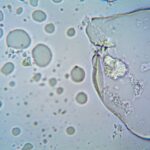Can Tylenol Damage My Liver?

Tylenol is the brand name for the pain medication acetaminophen. This medication is often available over-the-counter, and it can be used to treat mild to moderate aches and pains, such as those from menstrual cramps, sore throats, muscle pain, headaches, tooth aches, and back pain. Tylenol is also used to reduce fever, and while it is safe in the recommended doses, high doses can come with consequences, including liver problems. Learn the details here.
Tylenol and Liver Damage
Tylenol is safe and effective for managing pain when taken in small doses over short periods. Experts recommend that adults limit their Tylenol dosage to no more than 4,000 milligrams per day, and that they take the medication for no longer than 10 days, unless a doctor recommends otherwise. Doses for children and teens are lower, based upon their body weight.
Taking more than the recommended dose of Tylenol can lead to liver damage, which can be fatal or require transplant in some cases. This is because the liver is responsible for processing medications like Tylenol and filtering toxins out of the body. With too high of a dose of Tylenol, toxins build up more quickly than the liver can filter them out, resulting in damage.
You generally do not have to worry about liver damage if you take the occasional dose of Tylenol for pain or fever. With typical doses, the liver is able to process Tylenol without incident. On the other hand, taking excessive doses, whether intentional or unintentional, can lead to overdose and acute liver failure.
Fortunately, most cases of Tylenol-related liver damage are temporary and reversible, and liver functioning returns to normal with treatment.
Alcohol and Tylenol-Related Liver Damage
While taking large doses of Tylenol can lead to liver damage, the risks are increased among people who abuse alcohol. A recent study found that in chronic alcohol users, the risk of liver toxicity is increased if people use Tylenol soon after the body is cleared of alcohol.
A large body of research has found that consuming alcohol and Tylenol together causes liver toxicity, and long-term consumption of alcohol makes liver toxicity worse.
Based upon what has been learned from research, if you are a heavy alcohol drinker, the risk of Tylenol liver damage may be higher.
Tylenol in Patients with Liver Disease
Another factor that can increase the risk of Tylenol liver damage is existing liver disease. Individuals with chronic liver disease are more likely to suffer an unintentional Tylenol overdose, because they have weaker liver function when compared to someone without liver disease. Among those with liver disease, doses lower than the recommended daily maximum can cause liver damage. That being said, Tylenol is still considered the safest pain-reliever for those with liver disease.
Signs of Tylenol-Related Liver Damage
If you’ve overdosed on Tylenol and are at risk of liver damage, you will experience some of all of the following symptoms:
- Stomach pain or cramping
- Loss of appetite
- Diarrhea
- Nausea and vomiting
- Shortness of breath
- Irritability or confusion
- Extreme sleepiness
- Sweating excessively
- Fainting
- Reduced urination
- Dark urine
- Blurred vision
- Pain under the ribs
- Jaundice (yellow skin/eyes)
The above symptoms after Tylenol use indicate that you are likely suffering from an overdose, which makes it important to seek immediate medical treatment. Failing to seek medical care can result in permanent liver damage, or even death.
Treating Liver Damage from Tylenol
Since Tylenol-related liver damage can be fatal or severe enough to require a liver transplant, it is critical to seek medical treatment as soon as possible after experiencing Tylenol overdose symptoms. The goal of medical care is to prevent absorption of Tylenol, remove Tylenol from the bloodstream, and/or reduce the toxic effects of Tylenol on the liver. This can be achieved by giving certain medications, such as activated charcoal, inducing vomiting, and providing antidotes to reduce the toxicity of Tylenol. With prompt medical treatment, you can reduce the risk of severe liver damage from Tylenol overdose.
Reducing the Risk of Liver Damage from Tylenol
Tylenol-related liver damage is possible, but it’s also preventable. You can lower your risk of liver damage from Tylenol by taking the following precautionary measures:
- Do not take more than the recommended daily dose of Tylenol.
- Refrain from mixing Tylenol with alcohol.
- Ask a doctor about the safe amount of Tylenol consumption if you have liver disease.
- Be sure to check over the counter and prescription medication labels, as you may not realize that you’re using products containing Tylenol. Any product that includes acetaminophen as an ingredient is the same as Tylenol, and you may unknowingly be ingesting multiple sources of Tylenol and exceeding daily limits.
- Ask a doctor how much Tylenol you can safely give to your child or teen.
- Seek immediate medical care if you show symptoms of Tylenol overdose.
The Bottom Line
So, can Tylenol damage the liver? It is possible to suffer Tylenol related liver damage if you take large doses of this medication. In most cases, it is safe to use Tylenol for short-term pain relief and fever reduction if you do not exceed the recommended maximum dose of 4,000 mg per day. If you use more than this dose, your risk of Tylenol liver damage is higher. The risks may be elevated even more in people who abuse alcohol or suffer from chronic liver disease.
If you’re worried about liver damage from Tylenol, consult with a doctor about the safe amount of Tylenol use for you. Be careful to read all medication labels to accurately track your daily Tylenol consumption, and be sure not to use more than the daily maximum. If you follow these steps, Tylenol is much less likely to damage your liver.
Sources:
- https://medlineplus.gov/druginfo/meds/a681004.html
- https://my.clevelandclinic.org/health/diagnostics/22157-acetaminophen-level-test
- https://www.sciencedirect.com/science/article/pii/S0022519320304148?casa_token=uwMPMw5eZp0AAAAA:8TqY0m2nRG5np3MVKcJ-0UamUncfQzCh4EtMdaeqVvGgpQFsPvxhZEj_yfob8gqdKdvS7Ya0L9g
- https://archivepp.com/storage/models/article/ZXSoLEjL8DcjcMdASHlJa1yDPFBhOgx4lYpLIaytaxD39KzaUDoXDmNpg95c/evaluation-of-recent-updates-regarding-acetaminophen-induced-acute-liver-failure.pdf
- https://www.ncbi.nlm.nih.gov/pmc/articles/PMC5225146/




